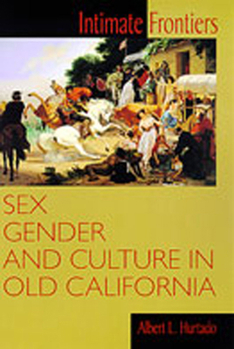Intimate Frontiers: Sex, Gender, and Culture in Old California
(Part of the Histories of the American Frontier Series)
Select Format
Select Condition 
Book Overview
This book reveals how powerful undercurrents of sex, gender, and culture helped shape the history of the American frontier from the 1760s to the 1850s. Looking at California under three flags--those of Spain, Mexico, and the United States--Hurtado resurrects daily life in the missions, at mining camps, on overland trails and sea journeys, and in San Francisco. In these settings Hurtado explores courtship, marriage, reproduction, and family life as a way to understand how men and women--whether Native American, Anglo American, Hispanic, Chinese, or of mixed blood--fit into or reshaped the roles and identities set by their race and gender.
Hurtado introduces two themes in delineating his intimate frontiers. One was a libertine California, and some of its delights were heartily described early in the 1850s: Gold] dust was plentier than pleasure, pleasure more enticing than virtue. Fortune was the horse, youth in the saddle, dissipation the track, and desire the spur. Not all the times were good or giddy, and in the tragedy of a teenage domestic who died in a botched abortion or a brutalized Indian woman we see the seamy underside of gender relations on the frontier. The other theme explored is the reaction of citizens who abhorred the loss of moral standards and sought to suppress excess. Their efforts included imposing all the stabilizing customs of whichever society dominated California--during the Hispanic period, arranged marriages and concern for family honor were the norm; among the Anglos, laws regulated prostitution, missionaries railed against vices, and proper women were brought in to help civilize the frontier.





